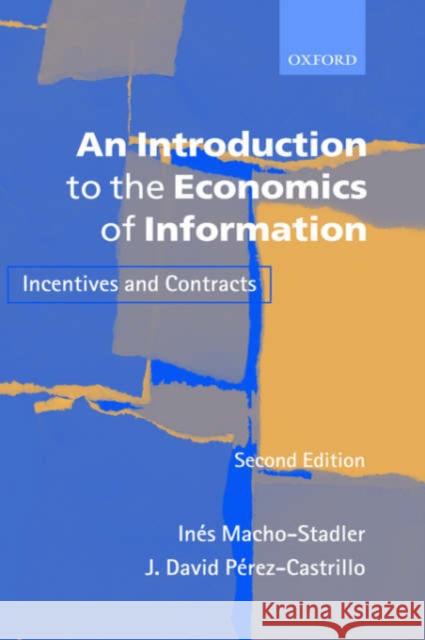An Introduction to the Economics of Information: Incentives and Contracts » książka
An Introduction to the Economics of Information: Incentives and Contracts
ISBN-13: 9780199243273 / Hiszpański / Twarda / 2001 / 304 str.
This text, a fully revised second edition, covers the consequences for the character and efficiency of the interaction between individuals and organizations, when one party has more or better information on some aspect of the relationship. This is the condition of asymmetric information, under which the information gap will be exploited if, by doing so, the better-informed party can achieve some advantage. The book is written for a one-semester course for advanced undergraduates taking specialized course options, and for first-year postgraduate students of economics or business. After an introduction to the subject and the presentation of a benchmark model in which both parties share the same information throughout the relationship, chapters are devoted to the three main asymmetric information topics of Moral Hazard, Adverse Selection, and Signalling. The wide range of economic situations where the conclusions are applied includes such areas as finance, regulation, insurance, labour economics, health economics, and even politics. Each chapter presents the basic theory before moving on to applications and advanced topics."











